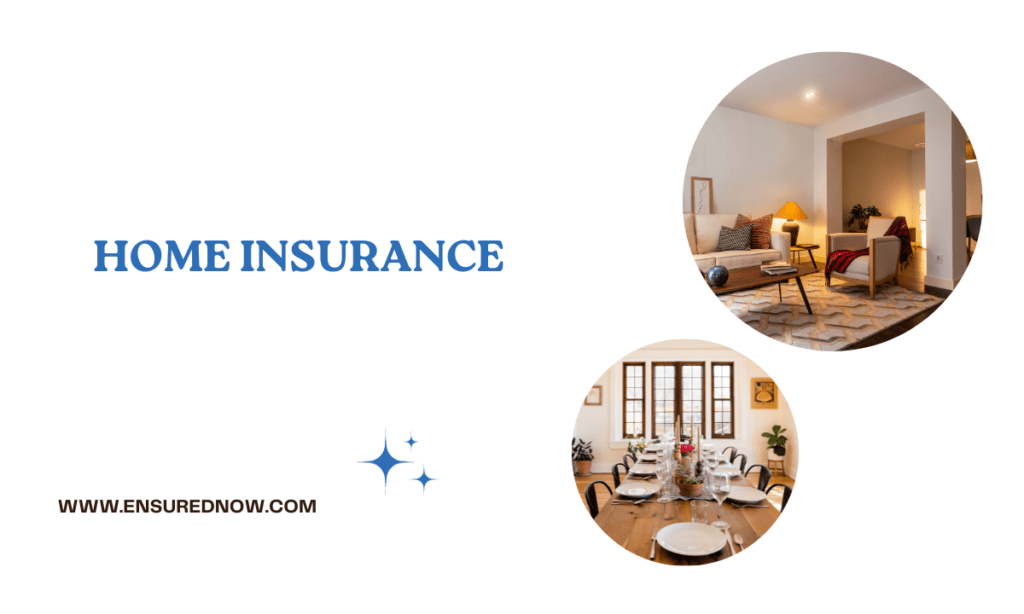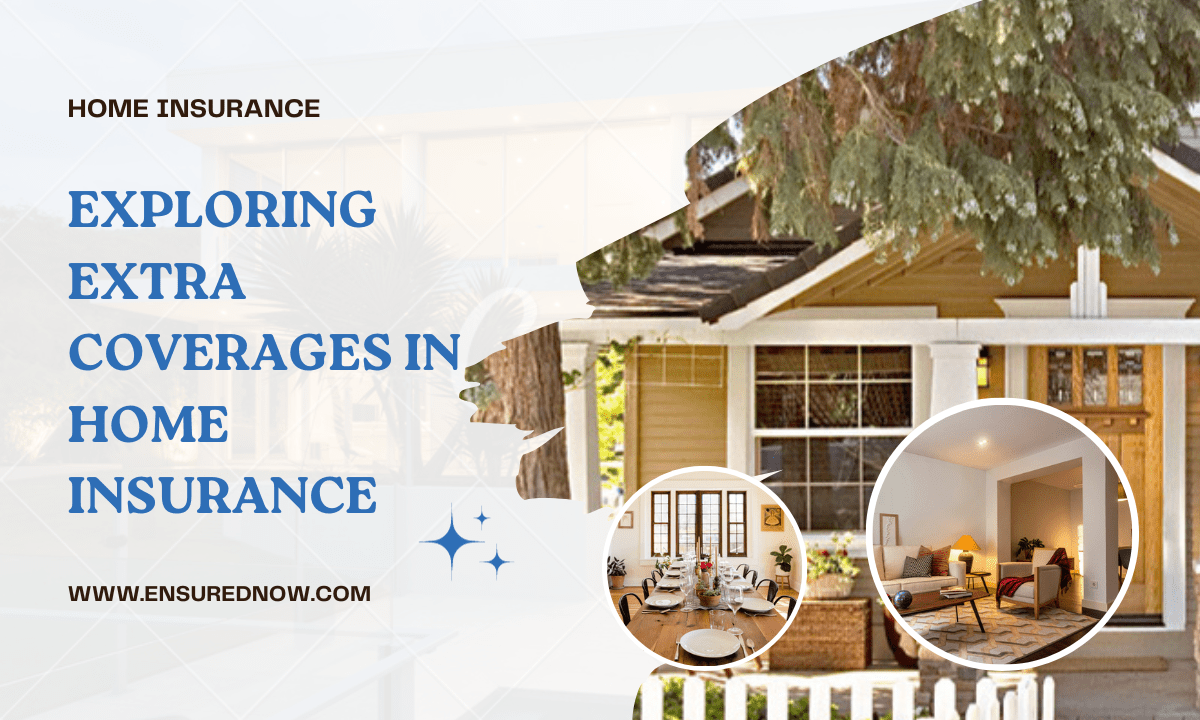Beyond the Basics: Exploring Extra Coverages in Home Insurance
I. Introduction to Home Insurance and Extra Coverages
A. The Foundation: Understanding Basic Home Insurance
The basic home insurance provides coverage for your home and personal belongings against a number of perils, including theft, fire, and certain natural disasters. It also provides liability coverage in case someone is injured on your property. However, the extent of these coverages is usually capped, which is why many homeowners opt for extra coverage.
B. Extra Coverages: Beyond Basic Policies
Extra coverages, or endorsements, supplement your policy either by increasing the policy limits or extending coverage to areas typically excluded in standard policies. These coverages can be particularly valuable when rebuilding or replacing your property exceeds standard policy payouts or when confronted by region-specific risks like floods or earthquakes.
C. The Importance of Supplementary Home Insurance
Supplementary home insurance ensures that gaps left by your standard policy are bridged, providing comprehensive coverage customized to your needs. Considering how unpredictable life can be, having complete coverage can offer peace of mind.
II. Various Types of Extra Coverages
A. Examination of Replacement Cost Plus Coverage
Replacement cost plus coverage, also known as extended replacement cost coverage, compensates for the full cost of replacing or rebuilding your home even if it exceeds your policy limit.
B. Navigating Natural Disaster Coverages
Even though standard policies cover some natural calamities like windstorms and lightning, protection against earthquakes, floods, or landslides typically requires extra coverage. These policies can be a valuable asset depending on your geographical location and susceptibility to these hazards.
C. Understanding the Intricacies of Identity Theft Protection
Identity theft protection is an endorsement that compensates for costs involved in restoring your identity and repairing credit reports. Given the rise in online fraud and identity theft cases, this has become a popular add-on.
III. Determining Your Need for Extra Coverages
A. Assessing Your Home: Protecting Your Investment
The cost of rebuilding or replacing your home and personal possessions can often surpass standard policy limits. To ensure you’re protected, take into account factors like the age of your home, its structure, and the cost of building materials.
B. Consider Your Surrounding Environment: Location Specific Risks
Location plays a significant role in necessitating extra coverage. For example, a property in a flood-prone area or along an active fault line may require flood or earthquake insurance.
C. Covering Your Valuables: Essentials of Personal Property Coverages
High-value items like jewelry, antiques, or art may need additional coverages as these items usually exceed the basic policy’s coverage limit for personal belongings.
IV. Making the Most of Your Extra Coverages

A. How To Choose The Right Extra Coverages?
Choosing right extra coverage involves an assessment of your home, understanding of your standard policy, and identification of potential risks. Consult with an insurance professional for tailored advice.
B. The Interplay between Basic Insurance and Extra Coverages
Extra coverages should be seen as an addition to, not a replacement for, standard insurance. It’s about filling potential coverage gaps, ensuring your home is fully covered.
C. Optimizing Your Premiums: Balancing Cost and Coverage
Maximizing coverage doesn’t mean your premiums should break the bank. Consider factors such as your policy’s deductible and discounts you may be eligible for.
V. Stories from The Field: Real-Life Experiences with Extra Coverages
A. Success Stories: Times When Extra Coverages Saved the Day
“During the 2017 wildfires, our Californian home was destroyed. Luckily, our extended replacement cost coverage covered the complete reconstruction cost, which was above standard policy limit!” – Anonymous Homeowner
B. Cautionary Tales: When Lack of Extra Coverages Led to Loss
“A burst pipe resulted in a significant water damage, but my standard policy didn’t cover it. I wish I had invested in a water backup coverage!” – Anonymous Homeowner
C. Lessons Learned: Insights from Insurance Experts
“Many think it won’t happen to them and hesitate to invest in extra coverage. But when an unexpected loss occurs, additional protection proves to be worth investment.” – Anonymous Insurance Agent
VI. Closing Remarks: The Power of Prudent Planning
Being prudent in planning and understanding your specific home insurance needs can spell the difference between a heartbreaking loss and a minor inconvenience. Start by assessing your standard coverage and identifying potential gaps. A well-planned mix of basic and extra coverage won’t just bolster your peace of mind—it’ll also shield your home from unforeseen perils.
VII. Frequently Asked Questions
A. What types of extra home coverages are available in the market?
Different types of extra coverages include replacement cost plus, natural disaster insurance, water backup, equipment breakdown, and identity theft protection, among others.
B. How do I decide if I need extra coverages?
The need for extra coverages is specific to each homeowner. Factors like location, home value, presence of valuables, and personal risk tolerance all play into this decision.
C. Will adding extra coverages significantly increase my premium?
Adding extra coverages might increase your premiums. However, the increased cost typically pales in comparison to the potential loss if an unforeseen peril occurs that your standard policy doesn’t cover.
VIII. Summary: Walking Confidently on Your Home Insurance Journey
Owning a home is a complex journey—one that involves the onus of protecting your investment. Though the labyrinth of home insurance and extra coverages may seem daunting, this deep-dive served as your Ariadne’s thread, guiding you through the ins and outs. Whether you’re under-insured, over-insured, or just right is no longer a daunting question but one you can navigate confidently. Remember to consult with a trusted insurance professional for advice tailored to your specific circumstances.
Disclaimer: Specific additional coverages and the terminology used might vary by insurer and location, and may be subject to limitations and exclusions. Always consult with a trusted insurance professional for advice tailored to your specific circumstances. home-owners insurance, best home insurance company, mobile home insurance.




